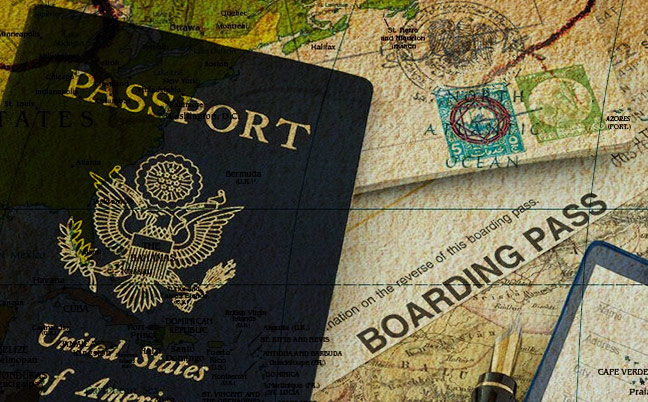As the Chief Marketing Officer of Travel Document Systems and the co-founder of Pinnacle TDS I get asked numerous questions every day about the recent US travel bans and general visa and passport requirements in this age of heightened security. Clients, friends and family are concerned that they have all the right travel documents before they head out on business or leisure travel. I tell everyone that asks to be prepared and have all their travel documents in order.
Below please find some guidelines that I personally follow to make my international travel go more smoothly!
[fancy_list style=”arrow_list” variation=”hotpink”]
- Make sure your US passport is valid for six months after the completion of your trip before you travel. Many airlines will not board you if you don’t have six months’ validity left on your US passport.
- Additional passport pages are not added to the valid US passport any longer. The passport must be renewed so allow adequate time. My company Travel Documents can assist you in expending any passport services www.traveldocs.com
- If your passport is mutilated in any way you could be denied boarding so make sure you keep your passport in a safe place.
- With the two-recent US travel bans there has been a great deal of confusion for our Middle Eastern clients. If you have a valid US visa issued before January 27, 2017 or a valid US Residency card you can enter the US.
- Permanent Residents of the US can freely travel to and from the US if their US residency cards are valid.
- Make sure you are well informed about the destination you are visiting and verify if a visa is required or not. Complete complimentary visa requirement information for US passport holders on our site www.traveldocs.com.
- Make sure you apply for the correct type of visa, if you are traveling for business you should not apply and obtain a tourist visa. If you obtain the incorrect visa you could be denied entry to that specific country, be detained or asked face a fine.
- The recent electronic ban that goes into effect on March 25, 2017 limits the carry-on of laptops and tablets on any direct flights into the US originating from Jordan, Turkey, Saudi Arabia, Kuwait, Egypt, Qatar, Morocco and the United Arab Emirates. This means any electronic device larger than a smart phone must be checked and cannot be carried on board the flight.
- If you have a smartphone make sure it is activated for overseas use so in case of an emergency so you can use it immediately instead of scrambling to find a phone in a country, you might not be familiar with.
- Make a copy of the informational page of your US passport ort take a clear photo of that specific page. If your passport is lost or stolen while traveling abroad the passport copy will assist in the issuance of the new US passport.
[/fancy_list]
